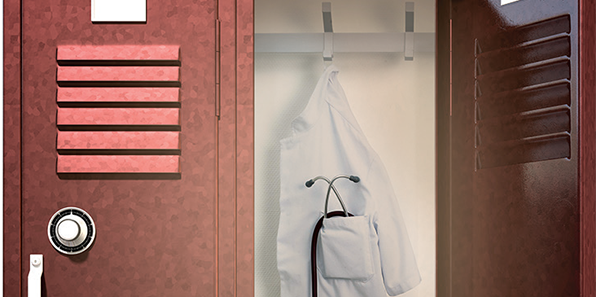
Re: “Unpacking the 2023 Match Week”
Unless we organize as a whole and unionize and get the private hospitals out of residency training the state of emergency medicine will continue to decline, leading to more apathy, medical malpractice claims, longer wait times, lack of hospital support in all aspects of quality medicine. You can draw a direct line to the explosion of non-academic residency programs and the lack of interest in filling them.
Explore This Issue
ACEP Now: Vol 42 – No 05 – May 2023You need doctors interested in teaching and the correct patient mix to train a new emergency department doctor. In the long run the only solution is to not betray the Hippocratic Oath.
Maybe we should get the hospital administrators to take the same oath instead of the oath to the almighty dollar/power/growth monster.
—Chris Hamann
Re: “Why Physicians Are Overconfident and How We Can Overcome It”
Dr. Koo, thank you for a concise and thoughtful essay. It is a needed check. I especially like the cognitive pause, to ask WECIB (What Else Could It Be?). I am entering my fifth decade in emergency medicine; I would be interested in thoughts on the flip side. Once you or I have seen a lot of cases and, yes, caused a lot of harm, we’re less certain.
For example, some emergency physicians are confident in tissue plasminogen activator (TPA) for stroke, not aware they are observing the natural history of many strokes as well as seeing stroke mimics. That confidence takes a hit when they injure a patient with a bleed that would not have otherwise occurred.
Confidence weakens further when, with follow-up (rare now that we use EBRs (electronic billing records) that have to be closed by end of shift), we discover the patient had a stroke mimic and could not possibly benefit from our therapy, but they could/did for sure suffer harm.
Thus, a thought: enjoy the over-confidence. It is a luxury that, should you survive long enough in EM, will be regarded in the rear-view mirror with fond indulgence.
—Tom Benzoni
Re: “Pros and Cons: Waiting Room Medicine”
You’re both saying the same thing, one glass half full and the other half empty. I’ve done both clinical and [administrative work] over the years within different systems. Some systems are definitely more metric focused and do a better job than others. Bottom line is that waiting room medicine is terrible for us and the patients.
Fundamentally, hospital CEOs are convinced that a shift from inpatient to outpatient care is the future. I would argue that patients don’t know that. We are the center of the medical universe. Physicians in the outpatient setting cannot keep increasingly complicated patients from the emergency department (ED), but actually encourage them to go if they are concerned.
We need to focus more staff and money on EDs, observation/respite units, and social workers. Make specialty ED in-person consultations normal. Let telehealth and artificial intelligence (AI) be the mainstays of outpatient care. We’re doing it wrong and those in charge are thinking about the future of medicine wrong.
—J. Benit
Pages: 1 2 | Multi-Page





No Responses to “Readers Respond: Match Week, Overconfidence, and Waiting Room Medicine”